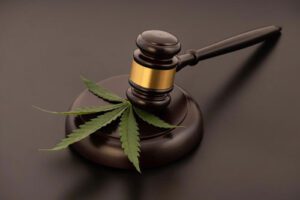 On February 14, 2023, the New Jersey Supreme Court decided the joint Middlesex and Morris County cases of State v. Richard Gomes. The principal issue under N.J.S.A. 2C:43-12 was whether a prior conditional discharge for a marijuana offense barred Pretrial Intervention (P.T.I.) for a subsequent criminal charge.
On February 14, 2023, the New Jersey Supreme Court decided the joint Middlesex and Morris County cases of State v. Richard Gomes. The principal issue under N.J.S.A. 2C:43-12 was whether a prior conditional discharge for a marijuana offense barred Pretrial Intervention (P.T.I.) for a subsequent criminal charge.
Judge Sabatino wrote for the Court in relevant part: The text of the PTI statute itself can be harmonized with CREAMMA in a similar manner. To be sure, we are mindful of the PTI statute’s generic language that a person with a previous conditional discharge “shall not be eligible” for PTI. But the PTI statute does not address the present distinctive and extraordinary situation in which conduct that had previously been deemed unlawful is now, in retrospect, deemed to have not occurred.
The PTI statute does not say that its “one diversion only” general statutory bar must penalize individuals who had been charged with a marijuana offense that the Legislature has since declared, through a comprehensive reform law, to be a nullity. In fact, the Attorney General and the Prosecutors acknowledge that persons who had previous marijuana convictions are allowed to apply for PTI when charged with new offenses. There is nothing in the text or enactment history of CREAMMA that supports a legislative intent to deprive persons with previous conditional discharges of that same opportunity.
The Appellate Division was hesitant to reach this conclusion out of concern that this interpretation would be an “implied repeal” of the pre-existing PTI and expungement statutes. But harmonizing statutes to determine an overarching consistent and logical construction that carries out manifest legislative intent is not the same thing.
Another valid point for the defense is that the PTI Guidelines state that the diversionary program is “ordinarily” only available one time to an applicant. The legalization of marijuana presents an extraordinary circumstance.
